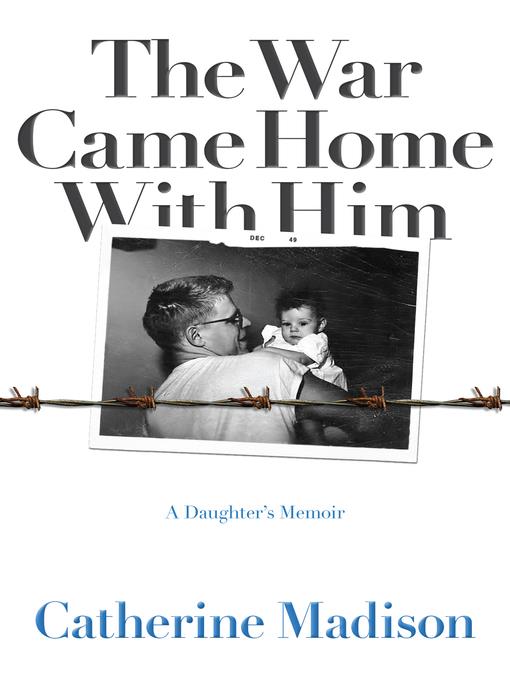
The War Came Home with Him
A Daughter's Memoir
کتاب های مرتبط
- اطلاعات
- نقد و بررسی
- دیدگاه کاربران
نقد و بررسی

August 1, 2015
The privations suffered by "Doc" Boysen as a POW during the Korean War wreaked havoc not only upon him but upon at least one other member of his family: his daughter Catherine Madison, an editor (Utne Reader), journalist (Chicago Tribune), and memoirist. In this account, Madison documents the details of Boysen's ordeal that remained hidden from his family as they followed him from post to post during his subsequent army career. His erratic and cruel behavior proved especially troublesome for the often-anxious Madison and some of his seemingly inexplicable actions (limiting her hair washing; an intrusive obsession with her teenage dating) magnified the usual indignities of adolescence into full-blown miseries. Boysen's insistence on drilling lessons in character and self-reliance into his children might have been seen as reasonable given the gruesome circumstances of his imprisonment--crippling frostbite, vermin, and starvation for starters--but those facts were not revealed until long after much damage had been done. VERDICT It's hard to imagine in this time of endless psychological examination that greater consideration was not given in the past to post-traumatic stress disorder (PTSD) and other conditions affecting returning POWs. Madison's dual narratives of the injury visited upon, and imposed by, her father raises complex questions of survival and forgiveness, relevant to readers dealing with family traumas themselves.--Therese Purcell Nielsen, Huntington P.L., NY
Copyright 2015 Library Journal, LLC Used with permission.

July 1, 2015
In her first book, former Utne Reader editor in chief Madison comes to terms with her father, a scarred veteran who waited until the day before he died at 78 to tell her he loved her. Taken prisoner in July 1950, just after his arrival in Korea, U.S. Army Medical Corps Capt. Alexander Boysen remained captive for 38 months and 12 days. The author gradually fills us in on the ghastly details of her father's captivity, interleaving those chapters with her own memories of an oppressive household dominated by the aloof, unpredictable "Doc." Growing up on a succession of Army bases, she and her younger brothers endured the common parental admonitions about cleaning your plate and not talking back. But these, and lectures about loyalty, grooming, trust, and modesty, were all delivered with a peculiar intensity and enforced with disproportionate discipline. Not until his death did Madison begin to understand the reasons why. Relying largely on accounts of her father's fellow prisoners, a scrapbook kept by her mother, and a manuscript Doc authored, the author pieces together the full, horrific dimensions of her father's imprisonment in a series of North Korean camps: forced marches through winter weather, rifle butts to the back and shoulders, pistol shots to the head, frozen feet, filth, lice, malnutrition, widespread infections, disease, and death. Only 27 when captured, Doc learned why some men lived and others died. He set about "force-feeding hope," intentionally disrupting the lethal cycle that began with the loss of personal pride and too often ended in pitiful death. He became a hero to the men in his care. After his ordeal, he enforced the same code with his family. To his children, the strict regimen and the reign of fear and force were simply baffling and sometimes cruel. Madison's vivid childhood vignettes demonstrate that decades before PTSD became an accepted diagnosis, her father continued to fight a war that for him never really ended. A heartfelt account of a family fractured by war and its awful aftereffects.
COPYRIGHT(2015) Kirkus Reviews, ALL RIGHTS RESERVED.

























دیدگاه کاربران